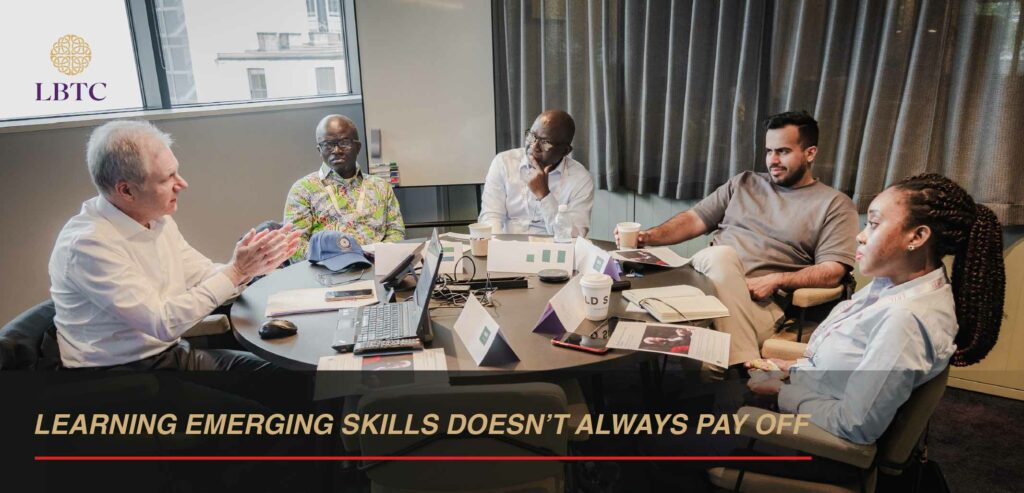
The professional world we have today is very fast-paced, and employees are constantly encouraged to upskill, reskill, and stay ahead of the curve. Therefore, it’s no surprise that it has become a necessity to organisations talent strategies. A recent article from Harvard Business Review has sparked conversion by challenging a huge assumption: that learning new skills always results in better career growth. It turns out that’s not always the case.
The Skill-Opportunity Mismatch
While the intentions behind the upskilling course are beautiful—all while maintaining employees current, increasing productivity, and boosting their job satisfaction—the actual outcomes might be less rewarding. The HBR article highlights that not all new skills result in meaningful advancement. In fact, getting niche or particular skills without understanding the apparent market demand can leave professionals frustrated and underutilised
This generates what experts say is a skill-opportunity mismatch”; it is where individuals invest time and resources in learning, but they are not able to find any worthy opportunities. For companies that offer a learning and development course, this serves as a critical reminder that training must be aligned well with future trends and market demands. Basically, they must be practical in the real market world.
Context Matters More Than Content
One more thing that’s surprising, which is research, is that the context in which new skills are learned may matter more than its content. Employees who actively engage in learning as part of structured, employer-supported courses are better than those who try to learn independently. This highlights the need that mentorship, collaboration, and institutional support play in successful development.
It also puts the value of selecting the right learning and development course—one course that goes beyond only introducing different new techs or work frames. Courses must be thoughtfully designed to connect with their current roles and provide opportunities for hands-on experience.
Quality Over Quantity
The emphasis on trying to learn continuously has sometimes resulted in what is commonly known as a “learning frenzy.” Employees are always known to rush to collect certifications or to attend many webinars they want to be relevant in the market. However, this does not mean more certifications are equal to the best opportunities.
Employers need to focus on quality over quantity rather than chasing the trend stuff; professionals need to assess their own goals and the demands of their industry and consult with managers or mentors before enrolling in the next popular learning and development course.
Strategic Upskilling for Long-Term Growth
So what’s the takeaway for today’s workforce? First, learning is still vital—it’s the cornerstone of innovation and adaptability. But it needs to be strategic. Blindly following trends or trying to future-proof careers by acquiring every new emerging skill may not yield the expected return.
Instead, organisations should foster a culture where learning is purpose-driven and closely tied to both individual career paths and organisational goals. Employees, on the other hand, should take the time to reflect on how a new learning and development course fits into their broader ambitions.
By being more intentional about skill development, professionals can ensure that their efforts not only enrich their knowledge but also contribute meaningfully to their career growth.

Leave a Reply